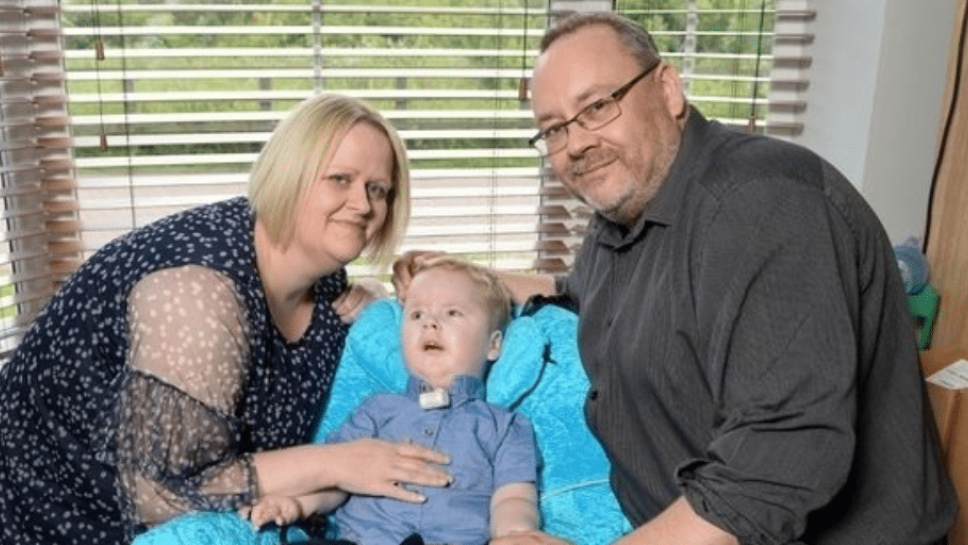
A potential new access scheme has been announced today which could see patients with SMA able to gain access to vital treatment, Spinraza, earlier than expected.
About Spinraza
Spinal muscular atrophy (SMA) is a devastating condition which, in the most severe cases, leaves babies with a life expectancy of rarely more than two years. Spinraza has been developed by pharmaceutical company Biogen and is the first and only treatment for people with SMA. It was approved by the European Medicines Agency in June 2017. Clinical trials showed significant improvement in children’s motor function, allowing them to achieve, or maintain, physical milestones that they would never reach without treatment, and to survive longer than expected considering the typical course of the condition. Some who would never have sat independently have been able to and some have been able to crawl and even walk.
Spinraza was shown to be so effective in clinical trial that Biogen agreed to provide the drug to all children with Type 1 SMA showing symptoms before six months of age through an expanded access programme. However, the scheme only provides the treatment for a percentage of the potential beneficiaries of Spinraza and is not sustainable as a long-term solution.
NICE appraisal
In the longer term, the availability of Spinraza will be determined by the National Institute for Health and Care Excellence (NICE), who assess and recommend treatments for access on the NHS. Yesterday, NICE started their appraisal of the SMA treatment, Spinraza, for all types. NICE are now looking at the treatment via the Single Technology Appraisal route. This is designed to assess drugs for both clinical and cost effectiveness and is usually used for more common conditions. As such, we are concerned that this route is not set up to assess rare disease drugs, like Spinraza.
We would expect guidance produced by NICE to be followed in Wales and Northern Ireland. Scotland has a standalone system, the Scottish Medicines Consortium (SMC), and the SMC are currently carrying out a consultation about Spinraza.
Managed Access Agreement
However, there is some promising news. Biogen have announced that they are in discussions with NICE and NHS England to put an interim access scheme in place. Known as a Managed Access Agreement (MAA), the scheme could see more people with SMA able to access the life-changing treatment while further data and evidence are gathered over several years.
Details of the scheme are not yet known. Muscular Dystrophy UK have joined forces with other SMA charities, including SMA Support UK, The SMA Trust and TreatSMA, in urging NICE, NHS England and Biogen to implement the scheme as quickly as possible. We are also calling for a review of NICE’s current appraisal structures to prevent avoidable delays for future treatments.
Robert Meadowcroft, Chief Executive of Muscular Dystrophy UK, said:
While we wait for the interim scheme to be implemented, the clock ticks away for those affected by this devastating, life-limiting condition who desperately need access to this treatment.
An interim scheme, which looks at making Spinraza available in the short term, is welcome. We must, however, address the problems with the current system for approving rare disease drugs.
A longer-term solution needs to be found. We need a more appropriate assessment route for rare disease drugs like Spinraza, which fall between NICE’s appraisal routes for new treatments.
What does this mean for families?
The prospect of an MAA is welcome news for families affected by SMA, who still face an anxious wait while Spinraza is considered for long-term delivery on the NHS by NICE. Without further intervention, the treatment is unlikely to be made available to families who could benefit from it, despite its proven track record.
Liz Lockley, 35, from Welwyn Garden City, Hertfordshire, whose son George (age 6) has SMA Type 2, but has not received treatment, said:
When George was diagnosed with SMA, our lives changed forever. SMA is a cruel condition. As a parent, it’s heart-breaking to see your child gradually lose their physical abilities, particularly when it happens in parallel to their twin brother gaining new skills every day.
While Spinraza is not a cure, it could help George maintain some of the strength he has left and could potentially enable him to gain new skills. Even if Spinraza could give George the ability to cough effectively, the SMA would no longer be such a threat to his life. Simple things like having more arm strength could enable George to live a much more independent life. This would be invaluable to us and, more importantly, to George.
What happens next?
We know that time is key and are anxious that Spinraza should not be subjected to any delays during the NICE assessment process. Please help us push for the MAA to be implemented as soon as possible by writing to your MP and asking for their support.
You can find your MP's contact details on the Parliament website.
To contribute to our SMC submission then please email on the details below.
Muscular Dystrophy UK will continue to work with other SMA charities to call for a longer-term solution to ensure Spinraza and other future treatments get to patients as quickly as possible.
Find out about our FastTrack to treatments campaign.
For more information contact our Campaigns team at: campaigns@musculardystrophyuk.org or 020 7803 4838.
